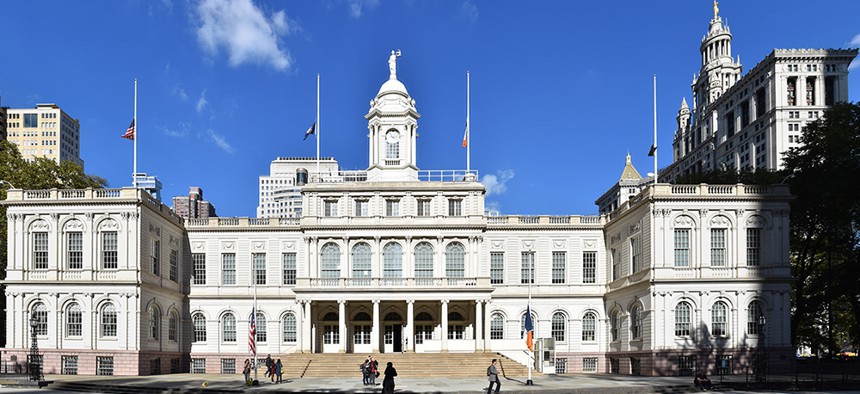Nonprofits
Employers pen letter of opposition to NYC's salary range law
Support for amendments would create loopholes to avoid compliance, advocates say

New York City Hall Photo by Wikipedia
Employers have written a letter of opposition to the New York City Council expressing support for a newly introduced bill that would create loopholes to the soon to be enacted “salary range law.”
The chambers of commerce of Staten Island, Queens, Brooklyn, the Bronx and Manhattan alongside the Partnership for New York City argued in the April 4 letter to the Council that the law was passed “without any meaningful public input or consultation with employers,” and said the law was passed “ without any process in place for informing employers about a law that requires a major change in their hiring practices.”
The salary range law currently requires that all job postings within New York City list the minimum and maximum salary ranges for an employer. It was passed through the City Council in December 2021 and will go into effect May 15th. The new bill supported by the chambers and partnership (Int. 134) would amend the salary range law to include an exemption for remote jobs and employers with less than 15 employees, creates a general “help wanted” job listing that does not require salary information, and pushes back the start date of the law to November 1st.
Advocates, such as PowHer who have fiercely supported the salary range law in hopes of closing the racial and gender wage gap are pushing back on the amendments.
“Billed as "tweaks," Int 134's proposed amendments would carve out a huge number of employers from complying with the requirement to include salary ranges in job listings, exempt even partially remote jobs, delay enactment, and create loopholes that undermine the intent and scope of the law.” said Beverly Neufeld, President of PowHer New York.
“Advocates call on the new progressive City Council, which is a majority female, to reject this blatant attempt to let business pressure obstruct the needs of workers,” Neufeld added. “Salary transparency is good for both jobseekers and companies and is essential to achieving an equitable recovery for New York City."
NEXT STORY: Celebrating the 2022 Nonprofit 40 Under 40